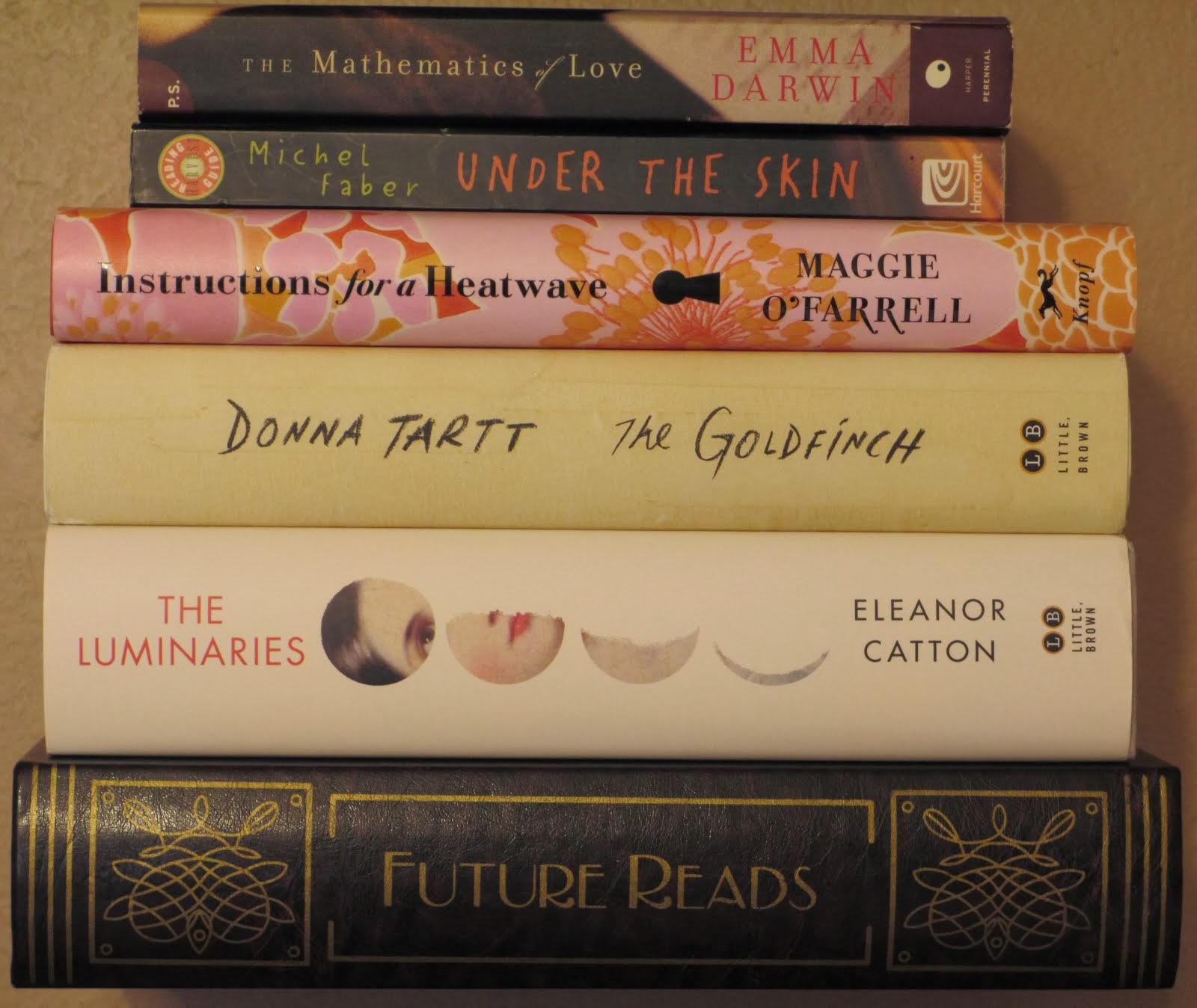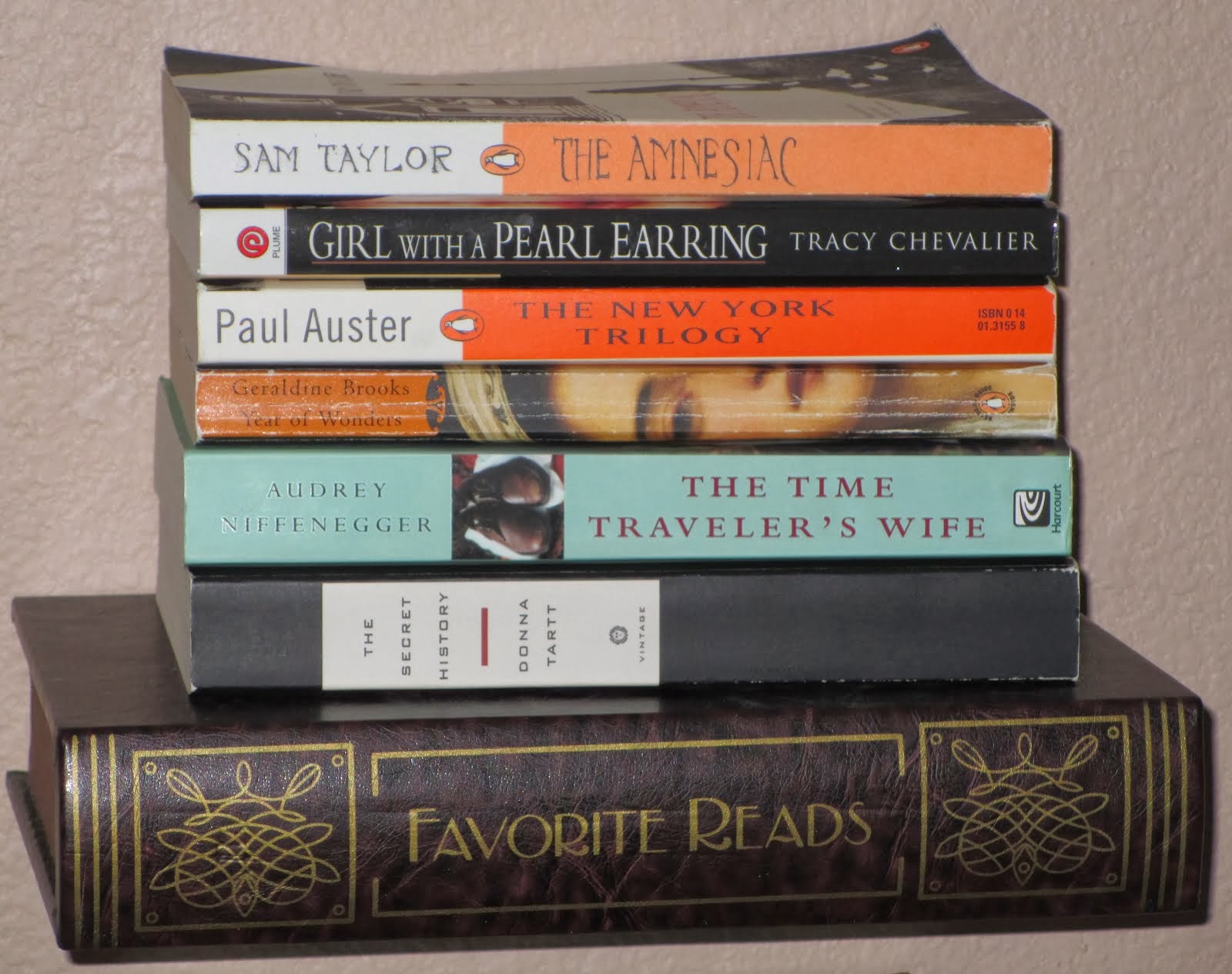I think something is wrong with me. Here is a book that won several awards and is listed as one of "500 of the best books you'll ever read." It was given 9 1/2 caterpillars and I was promised I would luuuuuv eet. A quick google blog search reveals that others have described it as "wonderful" and "beloved" and "unique."
But . . . but . . . this book is just such a mess. There's so much padding that could have been cut out. Too many of the characters are one-dimensional and have a ridiculously one-track mind. (No, not that track. This book doesn't have dirty bits.) Some of the characters were mere placeholders, talked about but never actually present, and left as loose threads.
I could go on. In fact, I think I will. Moments that should have been exciting or suspenseful are just annoyingly frustrating due to contrived delays or obstacles. The "transcripts" between the chapters are insulting in their recap of important details from the preceding chapter, as if I might have overlooked them if I only read them once. Small things are mentioned repeatedly (a shopping bag full of Christmas gifts, an umbrella strap, gobstoppers, a brass-bound casket), so that I was sure there must be some significance attached to each, but . . . there wasn't.
At least the story was interesting (although I had my own ideas that would have made it so much better. A little bit of time travel paradox does much towards blowing the mind.) Here's the premise. It's the year 2054 at Oxford University, when history can be studied in the best way possible: by traveling back in time to experience it first-hand.
Kivrin Engle is well prepared for her trip to 1320. She has learned all of the practical skills needed in the Middle Ages and is vaccinated against any number of medieval diseases. The "drop" appears to go well, and as far as anyone knows, Kivrin has made it to where she'd planned to go . . . until the tech says, "Something's wrong," and then faints on his computer keyboard. And proceeds to spend the next 400 pages either delirious or unconscious--in any case, unable to tell anyone what went wrong. (Yeah, that's one of those contrived delays or obstacles I mentioned earlier). Much worry and many deaths ensue.
In spite of all my aggravation, I wouldn't say I *hated* the book. I really didn't even dislike it strongly. I never had to force myself to read it. It wasn't boring. It wasn't so horribly poorly written that I couldn't stand it. But . . . it was a mess. And it definitely wasn't one of the 500 best books I've ever read.
I did learn something interesting as a result of this book. It sounds like a bit of history I should have already known. The title of the book, and more specifically the name Kivrin gave to her record of the events she experienced, came from a property survey of England and Wales conducted in 1085 for William the Conqueror. The record of that survey was called the Domesday Book in reference to the Day of Judgment "because its decisions, like those of the Last Judgment, are unalterable."
What about you? Have you read Willis's Doomsday Book, and did you love it? Am I the only person in the world who was not impressed?
The Darkest Corners – Kara Thomas
1 day ago





























